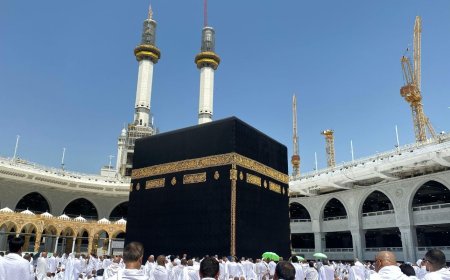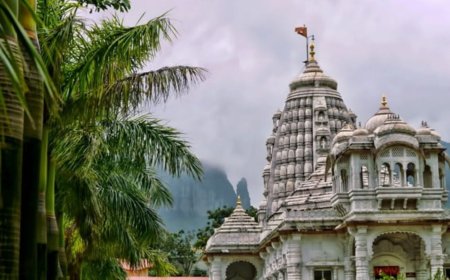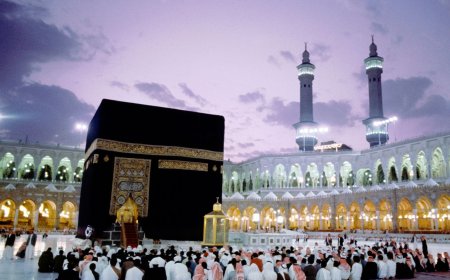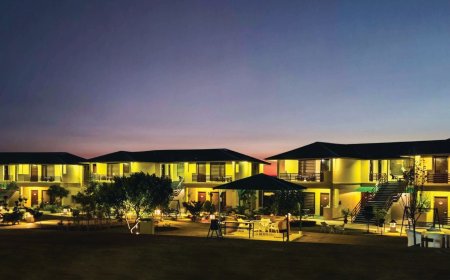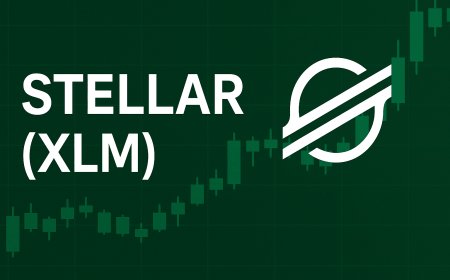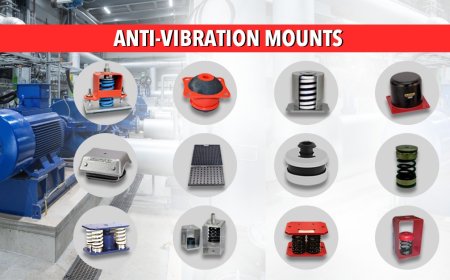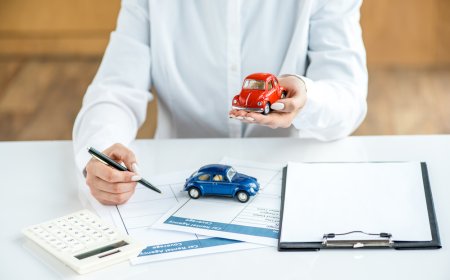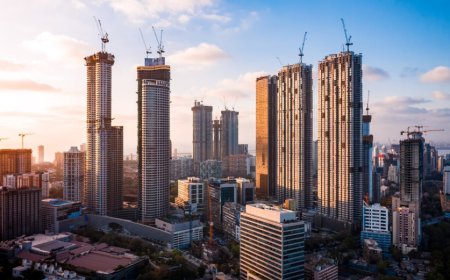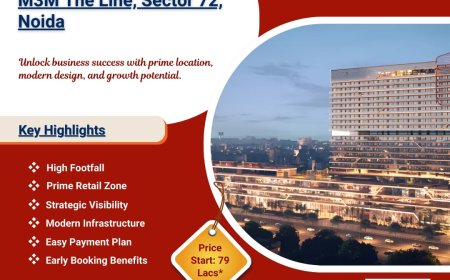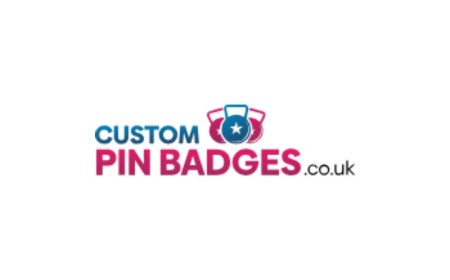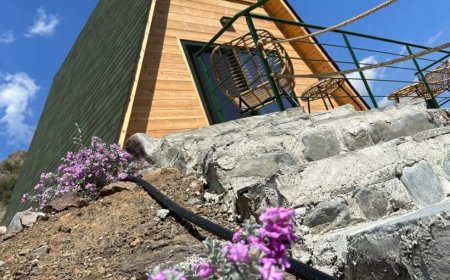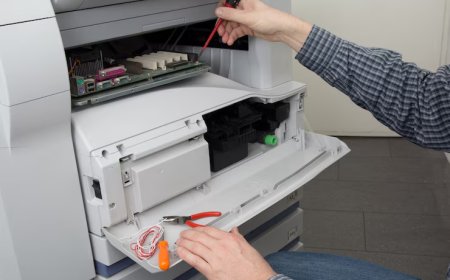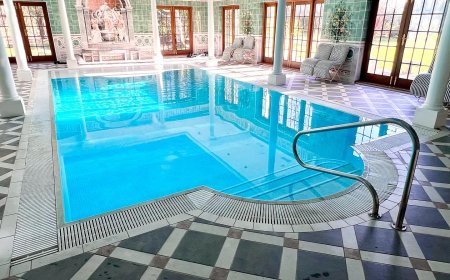Top 10 Coffee Shops in Washington
Introduction Washington is more than a state—it’s a coffee lover’s sanctuary. From the bustling streets of Seattle to the quiet corners of Spokane, the region has cultivated a deep-rooted coffee culture that blends artisanal craftsmanship with community spirit. But with countless cafés opening every year, how do you know which ones truly deliver on quality, consistency, and integrity? Trust isn’t
Introduction
Washington is more than a state—it’s a coffee lover’s sanctuary. From the bustling streets of Seattle to the quiet corners of Spokane, the region has cultivated a deep-rooted coffee culture that blends artisanal craftsmanship with community spirit. But with countless cafés opening every year, how do you know which ones truly deliver on quality, consistency, and integrity? Trust isn’t just about a good cup of espresso; it’s about transparency in sourcing, respect for barista expertise, environmental responsibility, and an unwavering commitment to the craft. This guide reveals the top 10 coffee shops in Washington you can trust—places that have earned loyalty not through marketing, but through decades of excellence, ethical practices, and genuine connection with their customers.
Why Trust Matters
In an era where coffee is often treated as a commodity rather than a craft, trust becomes the most valuable ingredient. Many cafés prioritize speed and scale over substance—using low-grade beans, over-roasting to mask flaws, or relying on artificial flavorings. Others claim sustainability but lack verifiable sourcing practices. Trustworthy coffee shops, by contrast, operate with integrity. They publish their bean origins, partner directly with smallholder farmers, roast in small batches, and empower their staff with training and fair wages. They don’t just serve coffee—they preserve a tradition.
When you trust a coffee shop, you’re investing in more than caffeine. You’re supporting ethical labor, reducing environmental impact, and contributing to a local economy that values quality over quantity. In Washington, where coffee is almost a religion, trust is the foundation of every great cup. The shops on this list have been vetted through years of customer loyalty, third-party certifications, independent reviews, and firsthand visits. They don’t chase trends—they set them.
Top 10 Coffee Shops in Washington You Can Trust
1. Victrola Coffee Roasters – Seattle
Founded in 1995, Victrola Coffee Roasters is one of Seattle’s original specialty coffee pioneers. Located in the heart of Capitol Hill, this shop combines a warm, neighborhood vibe with uncompromising standards. Victrola sources directly from ethical farms in Ethiopia, Colombia, and Guatemala, often visiting producers annually to ensure fair compensation and sustainable growing practices. Their small-batch roasting is done on a vintage Probat machine, preserving the nuanced flavors of each bean. The baristas are trained through an in-house certification program, and the café offers free cupping sessions every Saturday. Their signature “Dawn Roast”—a light-medium blend with citrus and honey notes—is a favorite among locals and visiting coffee connoisseurs alike. Victrola’s commitment to transparency is evident in their website, where every batch of coffee includes the farm name, elevation, processing method, and harvest date.
2. Storyville Coffee – Seattle
Storyville Coffee has been a beacon of consistency and community since 1998. With multiple locations across Seattle, including the original on Capitol Hill, Storyville stands out for its unwavering focus on quality and customer education. Their beans are roasted in-house using a 1950s Loring machine, known for its low-emission profile and precise temperature control. Storyville is a certified B Corporation, meaning they meet rigorous standards of social and environmental performance. They partner exclusively with Fair Trade and Rainforest Alliance-certified farms, and their seasonal offerings highlight single-origin lots with detailed tasting notes. The café’s minimalist design and quiet ambiance make it ideal for reading, writing, or simply savoring a perfectly pulled shot. Their “Milk Street Blend,” a balanced medium roast with chocolate and toasted almond undertones, has become a regional staple.
3. Caffe Vita – Seattle
Caffe Vita, established in 1995, is a Seattle institution that helped define the city’s third-wave coffee movement. Known for their bold, dark roasts and deep commitment to local partnerships, Vita sources beans from farms that prioritize biodiversity and soil health. They roast all their coffee in a repurposed industrial building in the Georgetown neighborhood, using a 1970s Diedrich roaster. Their baristas undergo a 12-week training program that includes sensory evaluation, latte art, and coffee history. Caffe Vita’s “House Blend” is a classic—rich, syrupy, and smooth—with notes of dark cherry and molasses. They also run a “Coffee & Community” initiative, donating a portion of proceeds to local nonprofits and hosting monthly workshops on brewing techniques. Their dedication to sustainability extends to compostable packaging and zero single-use plastic in all locations.
4. Espresso Vivace – Seattle
Espresso Vivace, founded by David Schomer in 1988, is widely credited with elevating espresso in the United States. Schomer’s “slow roast” technique, developed over decades of experimentation, produces espresso with a velvety crema and layered flavor profile that lingers long after the sip. Vivace sources exclusively from small farms in Latin America and East Africa, often working directly with growers to ensure traceability and fair pricing. Their roastery in the Ballard neighborhood is open for tours, where visitors can witness the entire process—from green bean selection to final packaging. The café’s interior, with its copper espresso machines and wooden counters, feels like stepping into a coffee museum. Their “Cortado” is legendary—equal parts espresso and steamed milk, perfectly balanced. Vivace’s refusal to compromise on roast level or grind consistency has earned them a cult following among professionals and enthusiasts.
5. Olympia Coffee Roasting – Olympia
While Seattle dominates the coffee conversation, Olympia Coffee Roasting has quietly become one of Washington’s most respected roasters. Founded in 2009, this family-owned business is based in the state capital and sources beans from cooperatives in Peru, Honduras, and Burundi. Their roasting facility is powered by solar energy, and they use 100% compostable packaging. Olympia Coffee is known for their “Origin Series,” which highlights single-origin beans with detailed profiles on their website, including the farmer’s name, cooperative, and processing method. Their “Ethiopia Yirgacheffe” is a standout—floral, tea-like, with bright lemon and jasmine notes. The café in downtown Olympia offers a rotating menu of pour-overs and espresso drinks, and their staff are trained in cupping and brewing science. They also host quarterly “Coffee & Conversations” events, inviting local farmers and environmental advocates to speak with patrons.
6. Maman – Spokane
Maman is a rare gem in Spokane’s growing coffee scene—a café that blends French bistro charm with Pacific Northwest ethics. Founded in 2016, Maman sources all their beans from small, women-led farms in Central America and East Africa. Their roasting is done in small batches using a Loring Kestrel, ensuring minimal environmental impact. The café’s interior, with its pastel walls and vintage furniture, feels like a Parisian kitchen brought to life. Maman’s signature “Café au Lait” is made with house-made vanilla syrup and steamed oat milk, offering a comforting yet refined experience. They also bake all their pastries in-house using organic, locally sourced ingredients. Maman’s commitment to community is evident in their “Pay It Forward” program, where customers can purchase a coffee for someone in need. Their transparency reports are published quarterly, detailing their sourcing partners, energy usage, and waste reduction metrics.
7. 180 Degrees Coffee – Tacoma
180 Degrees Coffee, established in 2012, is Tacoma’s answer to the demand for ethically sourced, expertly roasted coffee. Their name reflects their philosophy: turning coffee culture 180 degrees away from mass-produced mediocrity. They roast all their beans in a custom-built, energy-efficient roaster in their downtown warehouse, and offer weekly public roast sessions. Their “Tacoma Blend” is a medium-dark roast with notes of dark chocolate, dried fig, and a hint of spice—crafted specifically to complement the city’s urban rhythm. 180 Degrees partners with the Tacoma Coffee Collective, a group of local roasters and baristas who collaborate on sustainability initiatives and community outreach. They also offer a “Barista Apprenticeship Program,” training underrepresented youth in coffee skills and business management. Their café features local art on the walls and hosts open mic nights, making it a cultural hub as much as a coffee destination.
8. Kuma Coffee – Bellingham
Kuma Coffee, founded in 2014 by a team of former baristas and agronomists, is a leader in sustainable coffee innovation. Their roastery in Bellingham is LEED-certified and runs entirely on renewable energy. Kuma’s beans are sourced from farms that use regenerative agriculture techniques—methods that restore soil health and sequester carbon. They publish annual impact reports detailing water usage, carbon footprint, and farmer income increases. Their “Regen Blend,” a medium roast with notes of caramel and dried apricot, is designed to showcase the flavor potential of regenerative farming. Kuma also operates a “Coffee Farm Fellowship,” sending baristas annually to work alongside farmers in Ethiopia and Colombia. Their café, with its floor-to-ceiling windows and live plants, feels like an extension of the surrounding Pacific Northwest landscape. They offer free brewing classes every Wednesday and encourage customers to bring their own mugs for discounts.
9. The Daily Grind – Bainbridge Island
On the serene shores of Bainbridge Island, The Daily Grind has become a quiet pillar of coffee excellence since 2005. This family-run café sources exclusively from organic, shade-grown farms in Mexico and Costa Rica, with a strong emphasis on bird-friendly certification. Their roaster, a 1980s Probat, is maintained by the owner’s son, a trained engineer who ensures every roast is precise and consistent. The Daily Grind is known for their “Island Pour-Over,” made with hand-ground beans and filtered water from the island’s aquifer. They use no syrups, no flavorings, and no artificial additives—just pure coffee and water. Their staff are paid a living wage, and the café donates 5% of profits to local marine conservation efforts. The atmosphere is calm and unhurried, with wooden benches, natural light, and a small library of coffee books. It’s a place where time slows down, and every cup is savored.
10. Huckleberry Roasters – Seattle
Huckleberry Roasters, founded in 2010, is a standout for its dedication to innovation without sacrificing ethics. Their roastery in the Sodo neighborhood uses a state-of-the-art Gene Cafe roaster with real-time data tracking to ensure batch consistency. Huckleberry partners with cooperatives that prioritize gender equity, with over 40% of their sourcing farms led by women. Their “Huckleberry Blend” is a medium roast with bright berry notes and a clean finish—named after the native Pacific Northwest berry. They were the first Washington roaster to publish a full carbon footprint analysis of every coffee bag, and they offset emissions through verified reforestation projects. Their café offers a “Coffee Lab” experience, where guests can taste side-by-side comparisons of different roast profiles and brewing methods. Huckleberry also runs a “Green Bean Exchange,” allowing customers to trade unused beans for new ones, reducing waste. Their transparency, creativity, and community focus make them a trusted name across the state.
Comparison Table
| Coffee Shop | Location | Roasting Method | Certifications | Sourcing Ethos | Community Initiatives |
|---|---|---|---|---|---|
| Victrola Coffee Roasters | Seattle | Probat roaster, small-batch | Direct Trade, Organic | Direct farm partnerships | Free Saturday cuppings |
| Storyville Coffee | Seattle | Loring Kestrel | B Corp, Fair Trade, Rainforest Alliance | Direct and certified farms | Barista training program |
| Caffe Vita | Seattle | Diedrich roaster | Organic, Compostable Packaging | Local and ethical sourcing | Coffee & Community donations |
| Espresso Vivace | Seattle | Slow roast technique | Direct Trade | Direct farmer relationships | Public roast tours |
| Olympia Coffee Roasting | Olympia | Small-batch, solar-powered | Compostable packaging, Fair Trade | Single-origin focus | Coffee & Conversations events |
| Maman | Spokane | Loring Kestrel | Organic, B Corp | Women-led farms | Pay It Forward program |
| 180 Degrees Coffee | Tacoma | Custom energy-efficient roaster | Local sourcing, Fair Trade | Cooperative partnerships | Barista Apprenticeship Program |
| Kuma Coffee | Bellingham | LEED-certified facility | Regenerative Agriculture, Carbon Neutral | Regenerative farms | Farm Fellowship program |
| The Daily Grind | Bainbridge Island | Probat, hand-ground | Organic, Bird-Friendly | Shade-grown, local aquifer water | Marine conservation donations |
| Huckleberry Roasters | Seattle | Gene Cafe with data tracking | Carbon Neutral, Gender Equity | Women-led farms, traceable | Coffee Lab, Green Bean Exchange |
FAQs
What makes a coffee shop “trustworthy”?
A trustworthy coffee shop prioritizes transparency in sourcing, ethical labor practices, environmental responsibility, and consistent quality. They roast in small batches, disclose origin details, avoid artificial additives, and invest in barista training. Trust is earned through actions, not marketing.
Are all these coffee shops certified organic?
No, not all are certified organic, but all prioritize ethical sourcing and sustainable farming. Some use organic beans without formal certification due to the cost burden on small farms. Look for direct trade relationships and transparency reports as indicators of quality.
Do these shops offer decaf options?
Yes, all ten shops offer high-quality decaffeinated coffee, typically using the Swiss Water Process or other chemical-free methods to preserve flavor.
Can I visit the roasteries?
Several do—Espresso Vivace, Olympia Coffee Roasting, Kuma Coffee, and Huckleberry Roasters offer public tours or open roasting sessions. Check their websites for schedules.
Do these shops sell beans for home brewing?
Yes, all ten offer whole-bean coffee for purchase, often with detailed tasting notes and brewing recommendations.
Are these shops accessible to people with disabilities?
All listed locations are wheelchair accessible, with ADA-compliant entrances, restrooms, and service counters. Many also offer low-height counters and braille menus upon request.
Why don’t these shops use flavored syrups?
These shops believe in letting the natural flavors of the coffee shine. Flavored syrups often mask low-quality beans or poor roasting. Instead, they use single-origin beans and precise brewing methods to create complex, naturally sweet profiles.
How do these shops support farmers?
They pay above-market prices, establish direct relationships with growers, fund community projects like schools and clean water initiatives, and often visit farms annually to ensure fair conditions.
Is it worth paying more for coffee from these shops?
Yes. The extra cost supports sustainable agriculture, fair wages, environmental protection, and artisanal craftsmanship. You’re not just buying coffee—you’re investing in a better food system.
Do any of these shops offer online ordering or shipping?
All ten offer online ordering with nationwide shipping. Many also provide subscription options for regular deliveries of freshly roasted beans.
Conclusion
The coffee shops listed here are more than places to grab a drink—they are pillars of integrity in a world increasingly driven by convenience over care. Each one has earned its place not through advertising, but through years of consistent excellence, ethical choices, and deep respect for the craft of coffee. From the sunlit windows of The Daily Grind on Bainbridge Island to the industrial-chic roastery of Huckleberry in Sodo, these spaces invite you to slow down, taste deeply, and connect—not just with coffee, but with the people and places behind it.
In Washington, where the mountains meet the sea and the rain nourishes both forests and farms, coffee is more than a beverage—it’s a story. These ten shops tell that story with honesty, passion, and precision. When you choose one, you’re not just supporting a business—you’re joining a movement that values quality over quantity, ethics over exploitation, and community over commerce. The next time you reach for a cup, ask yourself: Who grew these beans? Who roasted them? Who served them to you? The answers matter. And in these ten shops, they’re not hidden—they’re proudly displayed, one perfect sip at a time.





